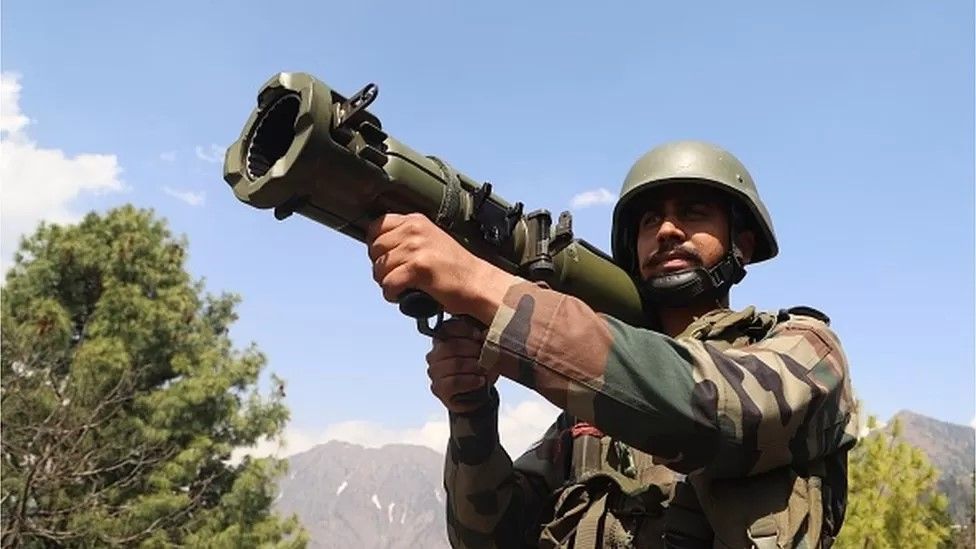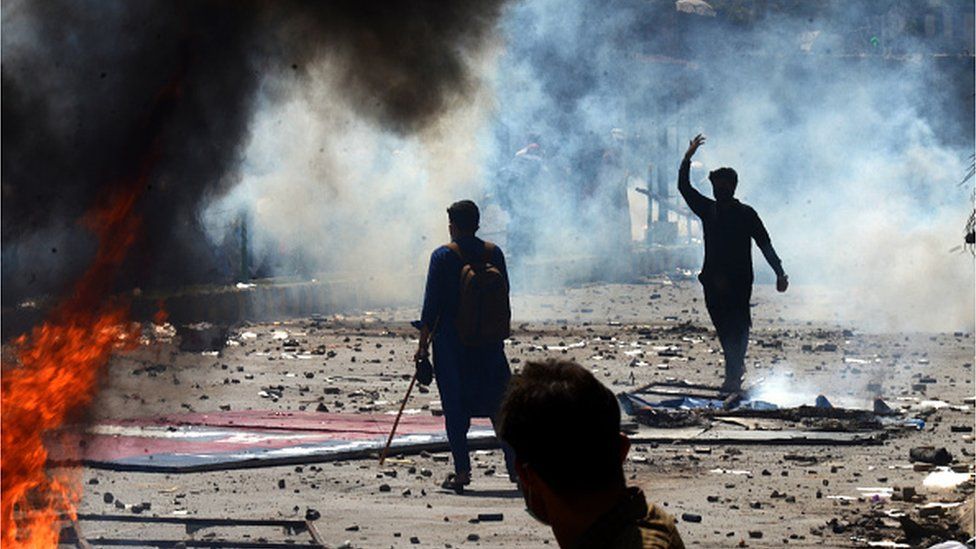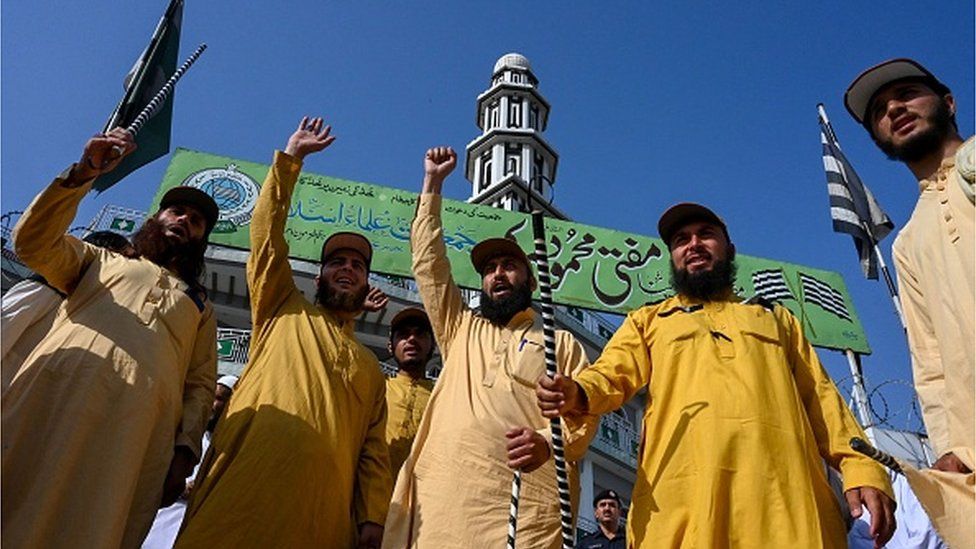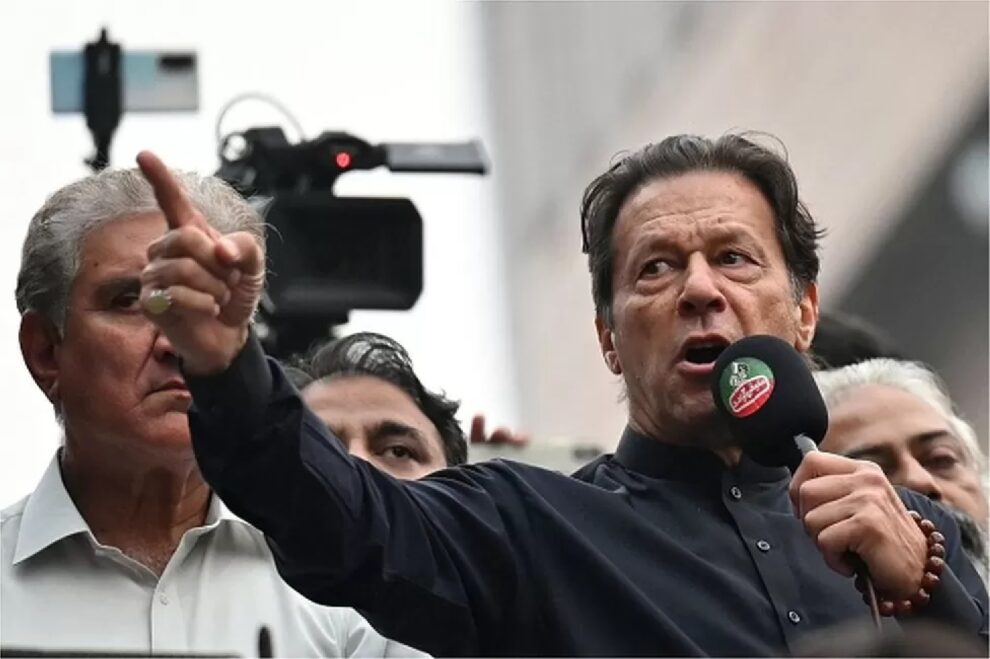During a trip to India many years back, a leading US-based specialist on South Asia had a conversation with a local analyst which he says still resonates with him.
“If Pakistan fails, we need to make sure it doesn’t take us down with it,” the expert told Michael Kugelman, director of the South Asia Institute at the Wilson Centre think tank in Washington.
In recent weeks, Pakistan has been convulsed by political and economic crises. The arrest of former prime minister Imran Khan on charges of corruption sparked violent clashes across the country, which is also reeling from high inflation and dismal growth, and in danger of defaulting. Mr Khan’s escalating confrontation with the army – a prominent player in Pakistani politics – which the ousted leader has even charged with trying to murder him.
“When your rival neighbour, a nation that’s volatile even as the best of times, is experiencing severe political stress, bouts of large-scale unrest, and especially concerns about the cohesiveness with the army leadership, then you should be worried,” Mr Kugelman says.
“It’s not that Pakistan’s churn could spill over into India, but more so that the churn could distract Pakistan from keeping control over things that could pose grave risks to India – like India-focussed militants.”

The countries have fought three wars since they became independent nations in 1947. All but one were over Kashmir. In 2019, India launched strikes in Pakistani territory following a militant attack on Indian troops in Kashmir. After the attacks, the two countries had come “close” to a nuclear war, former US Secretary of State Mike Pompeo claimed in his recent memoir. But a new border truce concluded in 2021 has kept things under control.
So should India be worried about the turbulence next door?
The past offers some clues. The turmoil in Pakistan in 1971 led to a bloody subcontinental war and the creation of Bangladesh. In 2008, the movement against Pervez Musharraf’s military rule came to an end and the leader suffered defeat at the polls. Months later militants linked to Pakistan attacked India’s western city of Mumbai.
But even going by recent history, the ongoing crisis is more worrying for India, says Husain Haqqani, a former Pakistani ambassador and a scholar at the Hudson Institute in Washington DC, and the Anwar Gargash Diplomatic Academy in Abu Dhabi. “The political chaos is happening at a time when Pakistan is facing its worst possible economic crisis and the establishment appears to be weaker and divided from within,” he says.

Experts like Mr Kugelman rule out two extreme scenarios: the first is Pakistan reaching out to India to explore reconciliation, though “it is another matter that India wouldn’t be interested”. And the second is Pakistan encouraging India-focussed militants to stage an attack across the border. “The last thing Pakistan can afford at this point is another conflict, or even a fresh crisis with India,” Mr Kugelman says.
But what should worry New Delhi is a situation that falls between the two extremes, say experts. That is one in “which Pakistan, distracted and overwhelmed by internal issues, lacks the bandwidth to keep a lid on any type of cross-border risk”, says Mr Kugelman.
Avinash Paliwal, who teaches politics and international studies at SOAS University of London, echoes a similar sentiment. He says the twin crises in Pakistan can hurt the ceasefire on the border.
“Either as a distraction, or to reassert control in the army by signalling strength on Kashmir, the Pakistani army chief has few reasons to encourage cross-border activism. This risk stands despite resource limitations, because the guarantor of the ceasefire in Pakistan is severely embattled,” says Mr Paliwal.
“In itself, a ceasefire breakdown is not a strategic threat to India, but in combination with the ongoing military standoff with China, it becomes more dangerous.” (Relations between India and China have been worsening. The neighbours have long running territorial disputes along their disputed land border.)

Many believe India needs to shake off its “obsession” with Pakistan, and not be overly worried by the crisis overwhelming the struggling neighbour. There also appears to be a sense among many Indians of the crisis “serving Pakistan right”, bordering on schadenfreude or the pleasure one feels from the someone’s else’s misfortune. After all, they say, India’s economy is 10 times bigger than Pakistan – and the troubled neighbour’s economy is smaller than Maharashtra, India’s richest state.
Such a reaction is “perfectly predictable”, says Mr Kugelman. “Nations want to see rivals squirm, and especially when those rivals have sponsored cross-border attacks and provoked wars against them. There is also a special satisfaction in India derived from watching the struggles of the Pakistani military, after many years of watching that military sponsoring terrorists that target India.”
“But if India is taking pleasure in all this while also being complacent about the dangers emanating from Pakistan, then that’s dangerous as well,” says Mr Kugelman.
It is true, as Mr Haqqani says, that it is not “in Indian interests to have a nuclear-armed neighbour in the throes of economic instability and political chaos”. However, commentators like Sharat Sabharwal, a former Indian high commissioner to Pakistan, do not believe that “Pakistan’s collapse is imminent; and instead it is likely to continue its messy journey as before.” Also, as Mr Paliwal says, Pakistan’s case “makes a good case against ideological and religious extremes” and the need to reign in religious nationalism.
With Pakistan closer to the edge, what should India do? “Perhaps the best case scenario in the circumstances would be for the status quo in the currently minimal bilateral relationship to continue and the ceasefire on the Line of Control [the de facto border] holds,” notes TCA Raghavan, a former Indian high commissioner to Pakistan.
Others like Mr Haqqani believe India is adopting a “wait and watch approach”, keeping a close eye on the border. The key is not to be caught unprepared. “India still needs to be careful not to let its guard down,” says Mr Kugelman.
Source : BBC















